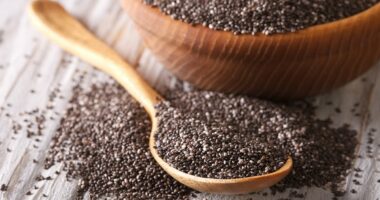Share this @internewscast.com
Scientists have pinpointed exactly when humans can be considered “old” and when physical deterioration of the body starts. When it comes to working out someone’s age, there are physical markers we can look for.
Wrinkles and grey hair are two obvious signs someone is getting older. However, research has shown that you get a pretty close answer from testing the blood.
The study, which was published in Nature Medicine, found that it was possible to gauge a person’s age reliably by analysing a blood sample for levels of a few hundred proteins.
Their findings also offered a valuable insight into the ageing process, suggesting that biological ageing is not a steady, linear progression, but rather accelerates at specific intervals.
It was determined that the most significant periods of ageing occur, on average, around the ages of 34, 60, and 78. They also concluded that the average person starts to show signs of physical condition deterioration at 34.
The ages of 34 to 60 years were considered adulthood, while from 60 to 78 years was categorised as late maturity, and from 78 years onwards was classified as old age.
As part of the research, the team isolated plasma from the blood from more than 4,200 healthy participants between the ages of 18 and 95. The researchers then used data from more than half of them to assemble a “proteomic clock” of ageing.
Find out about the symptoms you need to watch out for and get health advice with our free health newsletter from the Daily Express
As reported by the National Insitute of Ageing, within certain limits, the clock could accurately predict the chronological age of the study’s remaining 1,446 participants. The best predictions relied on just 373 of the clock’s almost 3,000 proteins.
The clock also reliably predicted the correct chronological age of four groups of people not in the study. Interestingly, it was possible to make a decent age prediction based on just nine of the clock’s most informative proteins.
Moreover, the researchers found that individuals who appeared biologically younger than their actual age based on their blood proteins also demonstrated superior cognitive and physical test performance.
What does this mean?
These findings imply that it may be possible to develop a blood test that identifies individuals who are ageing at a faster biological rate than others. Such individuals may be at a higher risk of developing age-related health issues, such as cardiovascular problems, Alzheimer’s disease, and osteoarthritis, earlier in life.
Furthermore, this research raises hopes for the development of interventions that could slow down the “proteomic clock” and potentially keep people biologically younger than their chronological age.
While this may seem like a distant fantasy, the same research team has previously demonstrated that it is possible to rejuvenate an older mouse by infusing it with blood from a younger mouse, offering a tantalising glimpse into the possibilities of anti-ageing treatments.
As mentioned, the researchers discovered indications that the ageing process encompasses a series of three bursts. The study authors found it particularly intriguing that the first burst occurs in early mid-life, around age 34, well before typical signs of ageing and its related health issues would appear.















